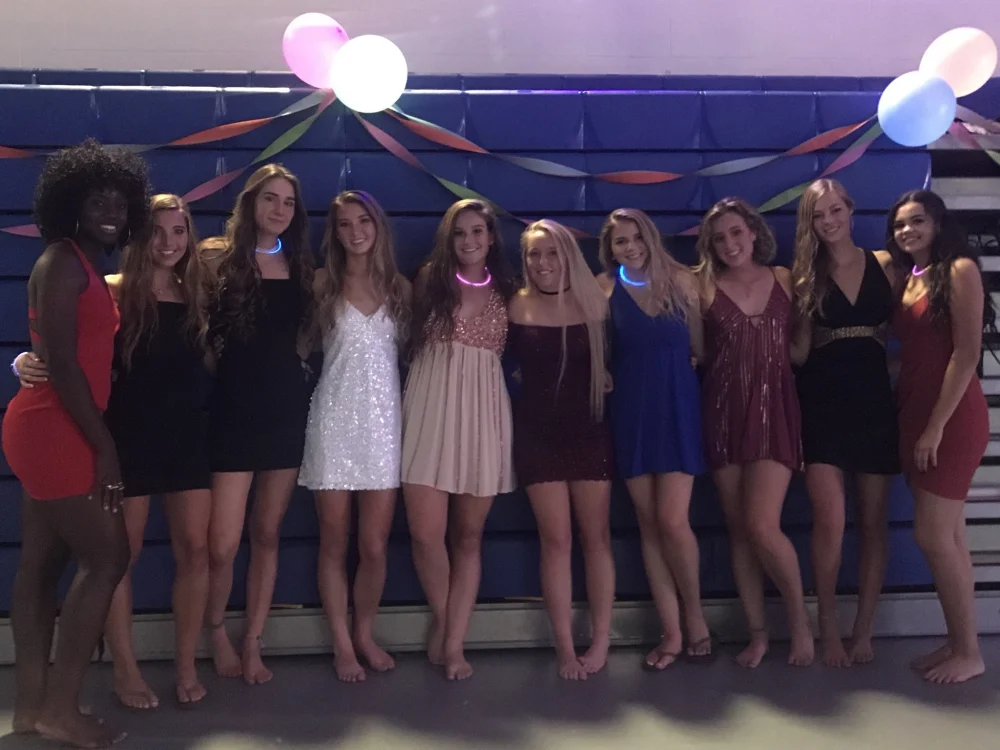
- what-is-homecoming-dance-in-high-school - What Is Homecoming Dance in High School?
- origin-and-meaning-of-homecoming-tradition - Origin and Meaning of the Homecoming Tradition
- what-makes-homecoming-different-from-prom - What Makes Homecoming Different from Prom?
- the-homecoming-week-experience - The Full Homecoming Week Experience
- how-students-prepare-for-the-dance - How Students Prepare for the Dance
- real-story-a-night-to-remember - Real Story: A Night to Remember
- why-homecoming-is-more-than-just-a-dance - Why Homecoming Is More Than Just a Dance
1. What Is Homecoming Dance in High School?
The homecoming dance in high school is a highly anticipated social event that typically takes place in the fall, marking the return of alumni and the celebration of school spirit. For many students, especially underclassmen, homecoming is their first taste of a formal dance—complete with music, decorations, and memories that last long after the music fades.
Unlike prom, which is generally reserved for upperclassmen and has a more formal vibe, the homecoming dance is inclusive and open to all grades. It’s often held in the school gymnasium or another local venue and is usually less formal in terms of attire and expectations, making it accessible and fun for a wider range of students.
For those looking to learn dance styles or build confidence on the dance floor, American Dance Academy provides beginner-friendly classes that help students prepare with ease and style.
2. Origin and Meaning of the Homecoming Tradition
Homecoming began as a collegiate tradition in the early 20th century, centered around welcoming alumni back for a big football game. Over time, high schools across the United States adopted the idea, blending it with pep rallies, parades, and, of course, the homecoming dance.
It’s more than just a party—it’s a celebration of school pride, community, and inclusion. The event helps students feel more connected to their school, whether they’re cheering at the game, voting for homecoming court, or dancing the night away with friends.
3. What Makes Homecoming Different from Prom?
Homecoming and prom are often compared, but they offer distinctly different experiences:
3.1 Timing and Season
Homecoming typically takes place in September or October, while prom is held in spring, usually close to graduation.
3.2 Dress Code
Homecoming is semi-formal. You’ll see short dresses, button-down shirts, and stylish but comfortable shoes. Prom, on the other hand, leans toward formal gowns and tuxedos.
3.3 Who Can Attend
Prom is usually limited to juniors and seniors, sometimes allowing underclassmen only if invited by an upperclassman. Homecoming is open to all grade levels, making it a more inclusive event.
3.4 Vibe and Venue
Prom tends to feel like a big formal send-off, while homecoming feels more like a reunion and celebration of school identity. It’s laid back, fun, and sometimes even themed.
4. The Full Homecoming Week Experience
The homecoming dance is the grand finale of a week-long celebration. Most high schools organize themed dress-up days, spirit rallies, and the much-loved homecoming football game. It's not just about the night of the dance—it's the energy that builds throughout the week.
4.1 Spirit Days
From “Decades Day” to “Pajama Day,” these dress-up themes boost enthusiasm and give students a chance to express themselves.
4.2 Pep Rally
A school-wide gathering to energize students for the big game and honor sports teams, student leaders, and performers.
4.3 Homecoming Court
Students nominate peers for the homecoming court—often culminating in the crowning of a king and queen at halftime or during the dance.
5. How Students Prepare for the Dance
From choosing outfits to practicing dance moves, preparing for homecoming is almost as fun as the night itself. Students often shop weeks in advance, coordinate with their group of friends or date, and plan how they’ll get to the dance—whether by limo, carpool, or even walking from home if it’s close by.
5.1 Learning to Dance
Many students take short dance lessons beforehand, especially those nervous about slow dances or freestyling. At American Dance Academy, instructors help students feel more confident through casual, age-appropriate instruction that’s fun and relaxed.
5.2 Getting Ready
Hair, makeup, shoes, and accessories all become part of the excitement. Boys might borrow their first tie from dad; girls often try new hairstyles with friends that afternoon.
6. Real Story: A Night to Remember
In 2021, a high school student named Olivia went viral on TikTok after sharing her homecoming dance journey—from shopping at thrift stores for a budget dress to nervously practicing her first slow dance in the mirror. Her genuine reactions, from laughter to happy tears, resonated with thousands of teens navigating the same rite of passage.
Her story reminded many that homecoming isn’t about perfection—it’s about connection. Whether you dance like a pro or just sway to the beat, the magic lies in being part of something joyful and shared.
7. Why Homecoming Is More Than Just a Dance
At its core, homecoming is about community. It's one of those rare high school experiences that brings together freshmen and seniors, athletes and artists, old friends and new. It helps students feel seen, celebrated, and part of something larger than themselves.
And for many, it’s a first step into the world of social traditions, confidence, and fun under the lights. If you or your teen are prepping for that moment, American Dance Academy is here to help with everything from beginner dance moves to etiquette and posture tips that ease the nerves and add sparkle to the evening.
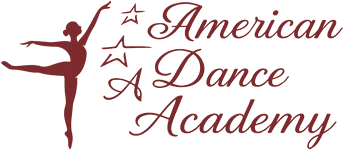
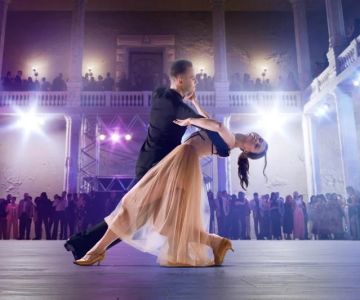
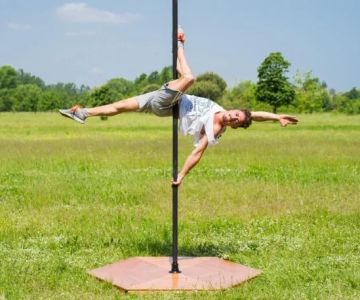
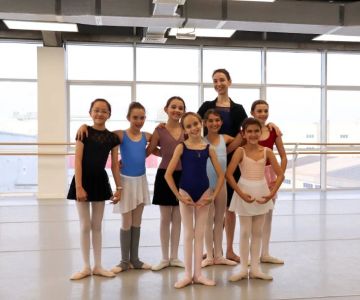
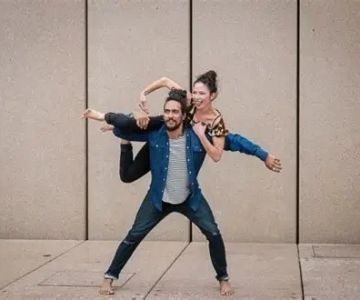
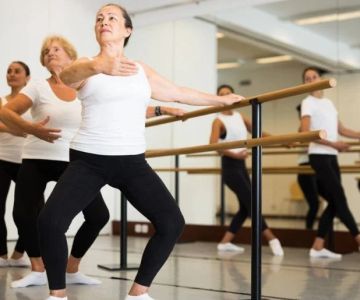
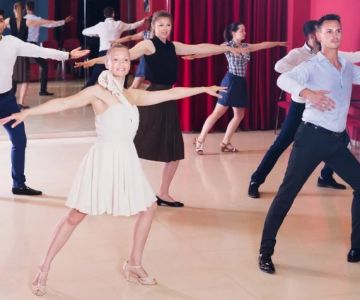
 Barrington Dance Academy5.0 (22 reviews)
Barrington Dance Academy5.0 (22 reviews) Canyon Concert Ballet4.0 (17 reviews)
Canyon Concert Ballet4.0 (17 reviews) Big City Dance Center LLC4.0 (25 reviews)
Big City Dance Center LLC4.0 (25 reviews) Tye Chua Dance & Kalamazoo Ballet5.0 (18 reviews)
Tye Chua Dance & Kalamazoo Ballet5.0 (18 reviews) Fenton Ballet Theatre4.0 (24 reviews)
Fenton Ballet Theatre4.0 (24 reviews) Front Street Dance Center5.0 (7 reviews)
Front Street Dance Center5.0 (7 reviews) Are There Dances in Middle School? What Students and Parents Should Know
Are There Dances in Middle School? What Students and Parents Should Know How a Dance School in Instagram Builds Community and Success
How a Dance School in Instagram Builds Community and Success Why Do Schools Teach Square Dancing?
Why Do Schools Teach Square Dancing?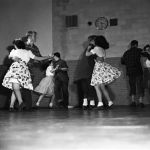 Why Was Square Dancing Taught in School?
Why Was Square Dancing Taught in School? Why Swing Dance Is Popular for Adults
Why Swing Dance Is Popular for Adults A School Dance: How to Prepare, Shine, and Make It Unforgettable
A School Dance: How to Prepare, Shine, and Make It Unforgettable